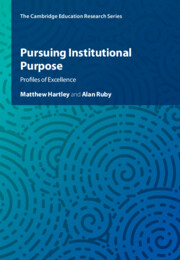Refine search
Actions for selected content:
80 results
6 - Quasi-Biographical Letters
- from Part II - Interpretation
-
- Book:
- The Epistles of John
- Published online:
- 17 December 2025
- Print publication:
- 08 January 2026, pp 153-176
-
- Chapter
- Export citation
5 - A Treatise on Sinlessness
- from Part II - Interpretation
-
- Book:
- The Epistles of John
- Published online:
- 17 December 2025
- Print publication:
- 08 January 2026, pp 113-152
-
- Chapter
- Export citation
Chapter 2 - Doctrine and Its (dis)contents
-
- Book:
- Law and Torture
- Published online:
- 17 December 2025
- Print publication:
- 18 December 2025, pp 27-67
-
- Chapter
- Export citation
Taking back control: maintaining professional autonomy as psychiatrists
-
- Journal:
- The British Journal of Psychiatry , FirstView
- Published online by Cambridge University Press:
- 04 December 2025, pp. 1-2
-
- Article
-
- You have access
- HTML
- Export citation
7 - What Chilling Effects Theory Is for
- from Part III - Implications
-
- Book:
- Chilling Effects
- Published online:
- 20 November 2025
- Print publication:
- 20 November 2025, pp 111-130
-
- Chapter
- Export citation
Chapter 1 - Purpose as an Ancient yet Nascent Construct
-
-
- Book:
- Purpose In Life As Ancient but Nascent
- Published online:
- 31 October 2025
- Print publication:
- 20 November 2025, pp 1-12
-
- Chapter
- Export citation
Chapter 2 - The Moral Purpose of Wisdom
-
-
- Book:
- Purpose In Life As Ancient but Nascent
- Published online:
- 31 October 2025
- Print publication:
- 20 November 2025, pp 13-44
-
- Chapter
- Export citation
Chapter 5 - Positive Transitions to Adulthood
-
-
- Book:
- Purpose In Life As Ancient but Nascent
- Published online:
- 31 October 2025
- Print publication:
- 20 November 2025, pp 86-106
-
- Chapter
- Export citation
Chapter 3 - Is Purpose Findable?
-
-
- Book:
- Purpose In Life As Ancient but Nascent
- Published online:
- 31 October 2025
- Print publication:
- 20 November 2025, pp 45-64
-
- Chapter
- Export citation
Part I - Storying-to-Learn: How Stories-that-Matter Help Us Appreciate Social Work in Action
-
- Book:
- Learning through Social Work Stories-That-Matter
- Published online:
- 28 August 2025
- Print publication:
- 11 September 2025, pp 35-310
-
- Chapter
- Export citation
Chapter III - Making Meaning of Career Narratives
-
- Book:
- From First Job to Career
- Published online:
- 19 September 2025
- Print publication:
- 21 August 2025, pp 175-190
-
- Chapter
- Export citation
3 - Law’s Limited Ambitions
-
- Book:
- Appearance, Disability and the Law
- Published online:
- 31 July 2025
- Print publication:
- 14 August 2025, pp 27-40
-
- Chapter
- Export citation
Chapter 15 - Conclusion
- from Part V - Integration and Conclusion
-
- Book:
- The Development and Organization of Meaning
- Published online:
- 11 June 2025
- Print publication:
- 26 June 2025, pp 201-207
-
- Chapter
- Export citation
11 - Drama, Music and Games
-
- Book:
- Teaching Modern Languages
- Published online:
- 04 September 2025
- Print publication:
- 12 June 2025, pp 177-188
-
- Chapter
- Export citation
33 - Legal Interpretation as Coordination
- from Part III - Applications
-
-
- Book:
- The Cambridge Handbook of Experimental Jurisprudence
- Published online:
- 17 May 2025
- Print publication:
- 05 June 2025, pp 546-577
-
- Chapter
- Export citation
11 - Rules
- from Part II - Introductions
-
-
- Book:
- The Cambridge Handbook of Experimental Jurisprudence
- Published online:
- 17 May 2025
- Print publication:
- 05 June 2025, pp 173-184
-
- Chapter
- Export citation
Chapter 12 - Explorations in Progress, Positivity, and Purpose
-
-
- Book:
- Pillars of Developmental Psychology
- Published online:
- 14 February 2025
- Print publication:
- 20 February 2025, pp 124-135
-
- Chapter
- Export citation
Chapter 14 - Facilitating effective meetings
- from Part 3 - Professional communication strategies in practice
-
- Book:
- Communication Skills for Business Professionals
- Published online:
- 25 February 2025
- Print publication:
- 15 January 2025, pp 370-400
-
- Chapter
- Export citation

Constructing an Incarnational Theology
- A Christocentric View of God's Purpose
-
- Published online:
- 09 January 2025
- Print publication:
- 23 January 2025

Pursuing Institutional Purpose
- Profiles of Excellence
-
- Published online:
- 19 December 2024
- Print publication:
- 27 February 2025
-
- Book
-
- You have access
- Open access
- Export citation
